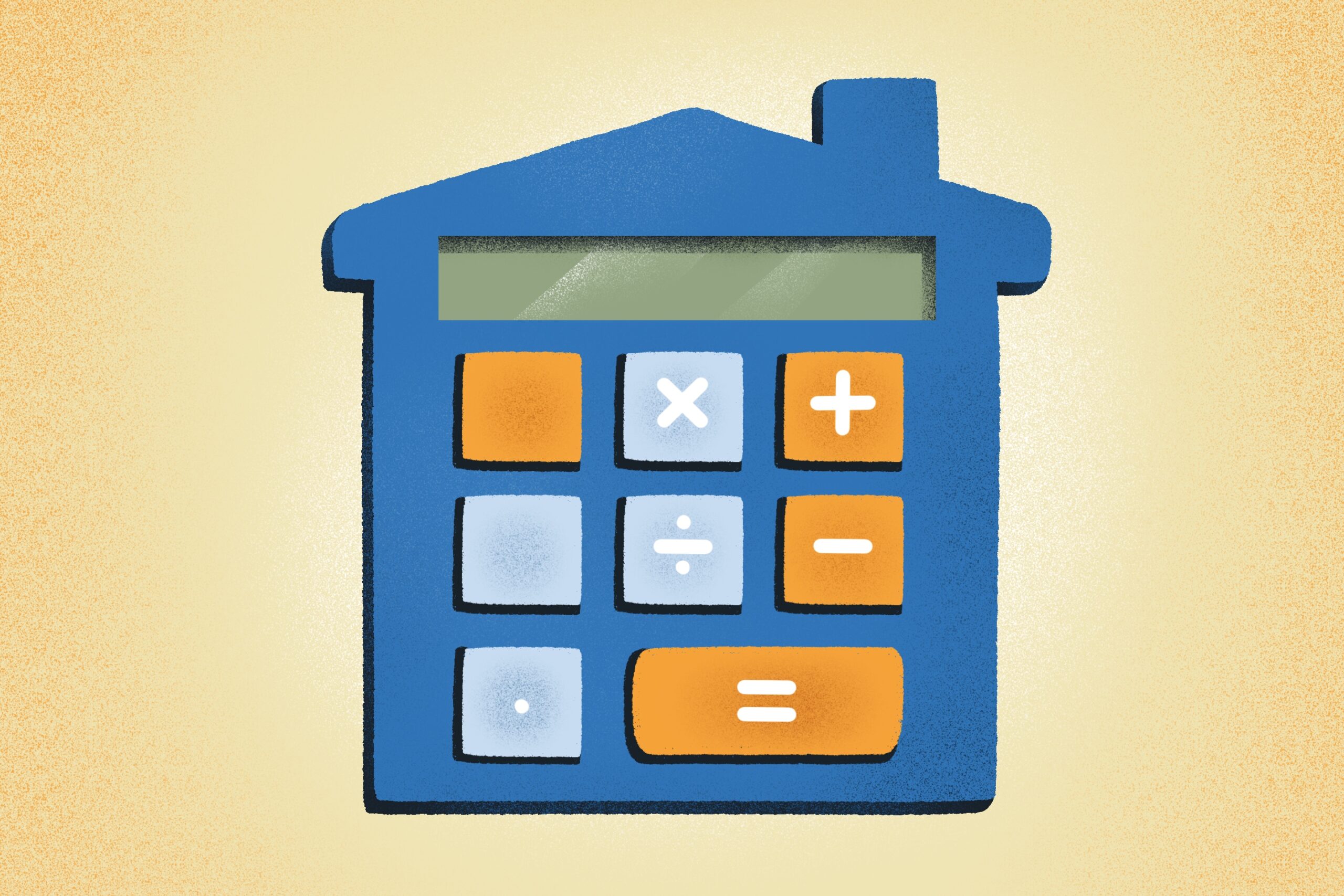Mortgage terms refer to the specific vocabulary and terminology associated with mortgages and home loans. These terms can include terms like adjustable-rate mortgage (ARM), closing disclosure, amortization, and debt-to-income (DTI) ratio.
Most lenders and financial institutions have glossaries or guides available to help borrowers understand these terms during the loan process. The Consumer Financial Protection Bureau, Bank of America, and Lending Tree are just a few examples of online resources that offer comprehensive mortgage term glossaries.
By familiarizing themselves with these terms, homebuyers can navigate the mortgage process more confidently and make informed decisions about their home loans.
Mortgage Basics
Definition of a mortgage:
A mortgage is a loan that is used to purchase a property. It is a legal agreement between the borrower and the lender, in which the borrower pledges the property as collateral for the loan. The lender, usually a financial institution such as a bank, provides the funds needed to buy the property, and the borrower makes regular payments over a specified period of time to repay the loan.
How mortgages work:
Mortgages work by allowing individuals to borrow money to purchase a home. The borrower agrees to make monthly payments, which include both principal and interest, over a predetermined period of time. The property serves as collateral for the loan, which means that if the borrower fails to make the payments, the lender can take possession of the property.
Types of mortgages:
| Conventional Loan | FHA Loan | VA Loan |
|---|---|---|
| Requires a higher credit score and down payment | Backed by the Federal Housing Administration | Available to eligible veterans and active duty military |
| May have lower interest rates | Allows for a lower down payment | No private mortgage insurance required |
| Ideal for borrowers with good credit | A good option for first-time homebuyers | Provides additional benefits for veterans |
Common mortgage terms:
- Adjustable Rate Mortgage (ARM)
- Amortization
- Annual Percentage Rate (APR)
- Cash-out refinance
- Closing costs
- Conventional loan
- Debt-to-income ratio (DTI)
- Escrow
- Fixed-rate mortgage
- Loan-to-value ratio (LTV)

Key Mortgage Terms To Know
| Key Mortgage Terms to Know |
|---|
| Adjustable-rate mortgage (ARM) |
| Amortization |
| APR |
| Cash-out refinance |
| Closing costs |
| Construction loan |
| Conventional loan |
| Debt-to-income (DTI) ratio |
Mortgages can be filled with complex terms that can be confusing for homebuyers. Here are some key mortgage terms that are important to know: – Adjustable-rate mortgage (ARM): This type of mortgage has an interest rate that can vary over time. – Amortization: The process of gradually paying off a loan through regular payments. – APR: The annual percentage rate represents the total cost of borrowing, including fees and interest. – Cash-out refinance: A mortgage refinance that allows homeowners to borrow against their home equity. – Closing costs: The fees and expenses that need to be paid when finalizing a mortgage. – Construction loan: A short-term loan used to finance the construction of a new home or renovation project. – Conventional loan: A mortgage loan that is not insured or guaranteed by the government. – Debt-to-income (DTI) ratio: A ratio that compares current debt payments to gross monthly income to determine loan eligibility. It’s important to familiarize yourself with these mortgage terms to make informed decisions when buying a home or applying for a loan.
Glossary Of Mortgage Terms
| Glossary of Mortgage Terms |
| Commitment (loan) |
| A formal offer by a lender stating the terms under which it agrees to loan money to a homebuyer. |
| Conforming loan |
| A conventional home mortgage that meets the loan limits set by government-sponsored enterprises such as Fannie Mae and Freddie Mac. |
| Jumbo loan |
| A mortgage loan that exceeds the loan limits set by government-sponsored enterprises. |
| Loan-to-value (LTV) ratio |
| The ratio of the loan amount to the appraised value or purchase price of the property. |
| Mortgage Insurance |
| A policy that protects the lender in case the borrower defaults on the mortgage. |
| Prepayment penalty |
| A fee is charged by the lender if the borrower pays off the mortgage early. |
| Principal |
| The original loan amount borrowed. |
| Refinancing |
| The process of replacing an existing mortgage loan with a new loan, often to obtain better terms or rates. |
Understanding Mortgage Documentation
| Mortgage Term | Definition |
|---|---|
| Adjustable-rate mortgage (ARM) | A mortgage with an interest rate changes periodically based on an index. |
| Closing Disclosure | A document that provides final details about the mortgage loan, including terms, fees, and closing costs. |
| Note and Mortgage | The legal documents outline the terms of the mortgage loan and provide the lender with a claim against the property. |
When it comes to understanding mortgage documentation, it’s essential to familiarize yourself with the various terms involved. During the mortgage application process, you may encounter terms such as pre-approval and pre-qualification, loan estimate, closing disclosure, and note and mortgage.
Pre-approval and pre-qualification are the initial steps in the mortgage application process, providing an estimate of how much you may qualify to borrow. The loan estimate is a document that details important information about your loan, including interest rates, annual percentage rates (APR), and closing costs.
The closing disclosure is a final document that outlines the terms of your mortgage loan, including the loan amount, interest rate, monthly payment, and closing costs. Finally, the note and mortgage are legal documents that establish the terms of your loan and provide the lender with a claim against your property.
Mortgage Terms And Considerations
When it comes to understanding mortgage terms, there are several key considerations to keep in mind. One important aspect to be aware of is escrow and impound accounts, which are used to collect and manage funds for property taxes and homeowners insurance. These accounts ensure that these expenses are paid on time.
Homeowners insurance is another important consideration when it comes to mortgage terms. It is a type of insurance that protects your home and belongings in the event of damage or theft.
Private mortgage insurance (PMI) is another term to be familiar with. This is insurance that protects the lender in case the borrower defaults on the loan.
Points and discount points are also important terms to understand. Points are upfront fees that are paid to the lender in exchange for a lower interest rate, while discount points are pre-paid interest that can be used to lower the interest rate over the life of the loan.
When considering a mortgage, it’s important to be aware of mortgage interest rates. These rates determine the amount of interest you will pay on your loan.
Lastly, it’s important to consider the length of the loan term. This refers to the amount of time it will take to repay the loan in full.
Exploring Mortgage Options
If you’re exploring mortgage options, it’s important to understand the various mortgage terms available to you. Government-backed mortgages such as FHA, VA, and USDA loans offer benefits and programs for specific types of borrowers. FHA loans are insured by the Federal Housing Administration and require a lower down payment. VA loans are available to veterans and offer competitive rates and flexible requirements. USDA loans are designed for low to moderate-income borrowers in rural areas and offer 100% financing. Other types of mortgages include fixed-rate mortgages, which offer a consistent interest rate throughout the life of the loan, providing stability and predictability. Adjustable-rate mortgages (ARMs) have interest rates that adjust periodically based on market conditions. Balloon mortgages have a fixed interest rate for a shorter period of time, with the remaining balance due at the end of the term. Interest-only mortgages allow borrowers to make interest-only payments for a specific period, after which principal and interest payments are required. Lastly, reverse mortgages are available to senior homeowners and allow them to convert home equity into cash. By understanding these mortgage terms, you can make an informed decision about the options that best suit your needs and financial goals.
Mortgage Calculations And Tools
Mortgage terms can be confusing, especially if you’re a first-time homebuyer. But don’t worry, there are tools and calculators available to help you navigate through the process.
Mortgage affordability calculators are a great way to determine how much you can afford to borrow. These calculators take into account your income, expenses, and other financial information to give you an estimate of the maximum mortgage amount you can qualify for.
Another important tool is the mortgage payment calculator. This calculator helps you estimate your monthly mortgage payments based on factors such as the loan amount, interest rate, and loan term. It can also show you how different factors, like a change in interest rate or loan term, can affect your monthly payments.
An amortization schedule is also essential in understanding your mortgage payments. This schedule breaks down each payment into principal and interest amounts, allowing you to see how much of your payment goes towards reducing the loan balance and how much goes towards interest.
When comparing mortgage rates and offers, it’s important to consider not only the interest rate but also other factors such as closing costs and loan terms. Comparing different mortgage options can help you find the best deal that fits your financial situation.
Frequently Asked Questions For Mortgage Terms
What Are Typical Mortgage Terms?
Typical mortgage terms include adjustable-rate mortgage (ARM), closing disclosure, amortization, APR, cash-out refinance, closing costs, and conventional loan. These terms are important to understand when applying for a mortgage.
Are Mortgages Usually On 15 Or 30-year Terms?
Mortgages are typically offered with 15 or 30-year loan terms.
Is There A 40-Year Mortgage?
Yes, there are 40-year mortgages available. These mortgages have a longer repayment period, providing borrowers with lower monthly payments, but higher overall interest costs.
What Is The Term For A 30-year Mortgage?
A 30-year mortgage is commonly known as a long-term mortgage provided by lenders to borrowers for a period of 30 years. This mortgage term allows borrowers to spread out their repayments over a longer period, resulting in lower monthly payments but higher overall interest costs.
Conclusion
Understanding mortgage terms is essential when navigating the loan process. From adjustable-rate mortgage (ARM) to closing costs, familiarizing oneself with these terms can save homebuyers from confusion and potential financial pitfalls. Bank of America’s comprehensive glossary provides definitions to ensure a smooth lending experience.
By knowing key mortgage terminology, borrowers can make informed decisions and avoid surprises. Whether securing a conventional loan or exploring alternatives, being well-versed in mortgage terms is crucial. So, take the time to learn the language of mortgages and empower yourself for a successful homebuying journey.
